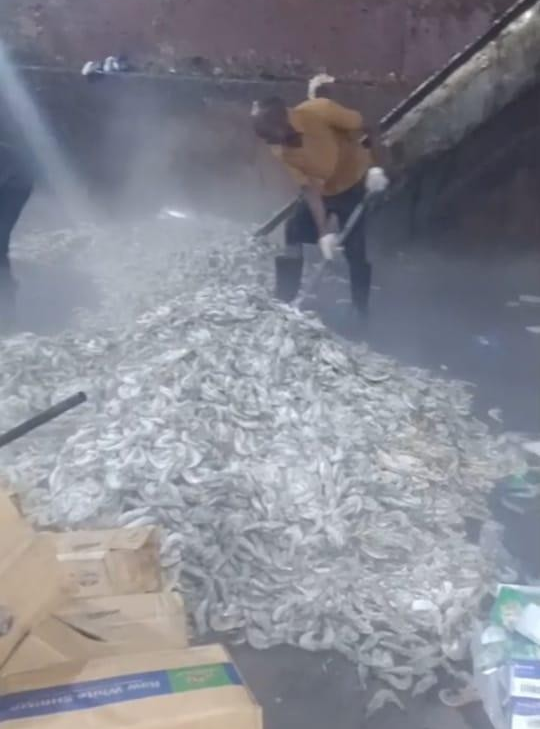
Some 50,000 kgs shrimp meant for destruction found heading to market
- CNL Reporter
- April 6, 2025
- Business News, News
- market
- 0 Comments
A stock of 50,000 kilograms of large shrimp, previously recommended for destruction, was discovered stored in two containers and being transported to the Peliyagoda Fish Market Complex, allegedly to be sold to the public.
The raid was carried out by officers from the Consumer Affairs Authority (CAA), which has since launched an investigation into the incident involving the shrimp containers at the Colombo Port.
According to a senior CAA official, the shrimp was found being fed into machinery owned by an animal feed manufacturing company based at the market complex. The raid followed a tip-off alleging that the containers were being brought to the complex and the shrimp was being prepared for public sale.
Preliminary findings revealed the company lacked a valid license from the Central Environmental Authority (CEA) to destroy food items, which is mandatory for handling products marked for destruction. The company head has been instructed to present the necessary licenses and documents to the CAA, as specific procedures must be followed for such operations.
The CAA further noted that the shrimp, released from the port under the supervision of Sri Lanka Customs and other government bodies, was being processed illegally, even for animal feed. Transporting food items marked for destruction to private entities is prohibited.
The shrimp containers had reportedly arrived at the Colombo Port from the United States in January. The Ports Authority invited tenders to sell the stock after the importer failed to clear it. However, no bids were received, likely due to a high minimum bid set by Sri Lanka Customs.
Port workers alleged that the company at Peliyagoda had submitted a tender to purchase the containers. However, since no tenders were accepted, and tender procedures typically require three rounds, the Ports Authority chose not to proceed and instead recommended destroying the stock in coordination with Customs officials.
To expedite the process, the shipping company that owned the containers received a letter from port authorities citing urgent need for the empty containers. On April 3rd, Senior Deputy Director of Customs M.D.P.M. Perera wrote to the Peliyagoda company, recommending the shrimp be destroyed there. Additionally, an undated letter from February by SLPA General Manager (Services), Priyashantha Katipearachchi, sought Customs’ permission to remove the shrimp, citing it as unfit for human consumption.
Port workers claimed all arrangements for the container transfer were handled by a single officer, recently promoted by the current administration, which came to power on an anti-corruption mandate. They also questioned the legality of Customs and SLPA allowing a private company to process food items marked for destruction, calling for government scrutiny.
They further alleged that the decision to destroy the shrimp stock caused a loss of several millions of rupees to both the government and the Ports Authority.
When contacted, Customs Media Spokesperson and Additional Director General Seevali Arukgoda confirmed the shrimp had deteriorated and could not be destroyed through conventional means, as per the Animal Quarantine Department. As a result, 67 bags had already been dried at the Peliyagoda company, and the remaining shrimp from the second container would be taken there on the 8th. The dried shrimp is to be buried in a swamp in the Kerawalapitiya area.
The 40-foot containers of frozen shrimp, SEGU9038747 and TTNU8343154, were located at the CICT terminal premises and had been scheduled for destruction by the Central Disposal Directorate of Sri Lanka Customs, following rejection by the Food & Drugs Inspector.
The destruction took place at Agri Star Compost (Pvt) Ltd, located at the Central Fish Market Complex, Peliyagoda, on April 3, 2025.

